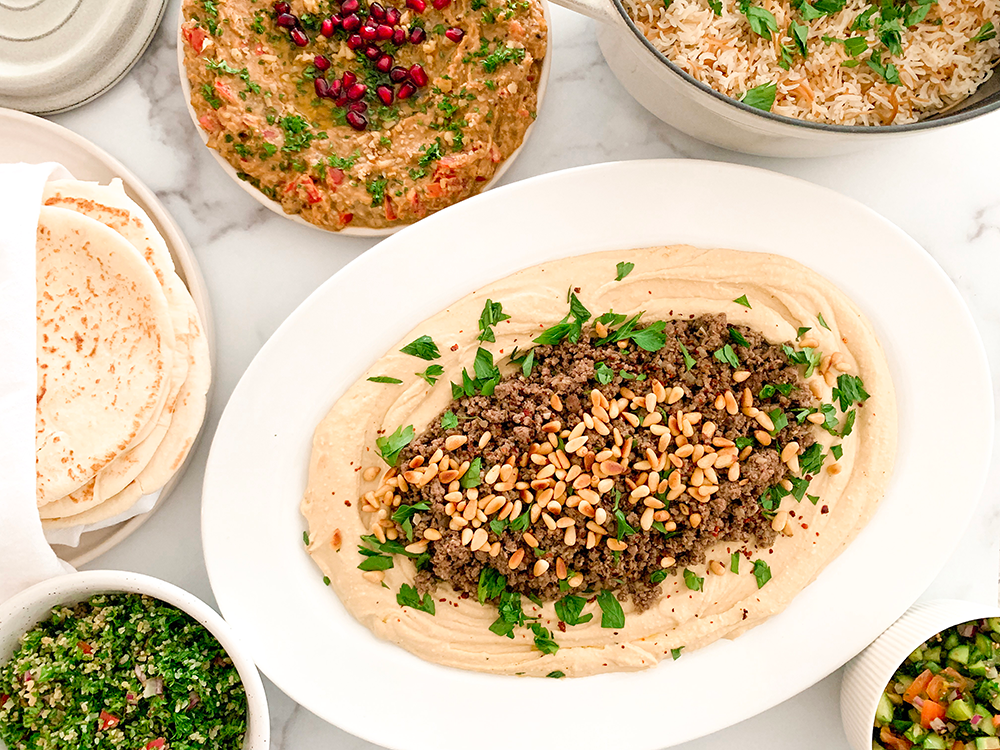
I was very lucky to grow up in an area with a melting pot of cultures, particularly in my not particularly diverse bit of northern England. When I moved to America I realised that for many people, their culinary world was not always as expansive – and so when I’d mention specific spices or ingredients people’s eyes would glaze over and I realised they had no idea what I was talking about. In the decade or so I’ve lived here that has changed a lot, and people are definitely becoming more well-versed in other cultures’ cuisines, but a lot of Mediterranean ingredients are still somewhat elusive, especially if you live far from an Arab supermarket, or other specialty food store. In this post I’ll go through the basic ingredients and equipment you’ll want to have on hand if you plan to do a lot of Mediterranean cooking.
NB. As an Amazon Associate I earn a small percentage from qualifying purchases linked on this page, though I only recommend products I actually use and find to be of high quality.
Mediterranean style cooking does not require a lot of specialised tools (I’m assuming you already have a chef’s knife, a cutting board, and other basic kitchen items, of course!) and while certain ones can be nice (for example, ma’amoul molds) they are not usually essential. The only appliances and equipment I deem essential are: a good-quality, high capacity food processor, a spice grinder, and a hand-held (manual) citrus juicer. (I’m assuming you already have a chef’s knife, a cutting board, and other basic kitchen items, of course!)

A high capacity food processor is helpful for mezze dishes and dips. I use mine for hummus, mutabbal, muhammara, and other dips. I also make large batches of toum in it – because we often gift it to friends, and we use it in so many recipes. My food processor sees regular, heavy use (I try to hide it away under the counter but it’s pulled out at least four times a week) – and although we have a small family, the portions I made help cut down on time since I’ll make batches at the beginning of the week to be eaten with various meals. It’s also great at pulsing ma’amoul dough, grinding nuts for baklawa, and so on. I used to have a small processor, but I found myself having to make multiple batches of hummus throughout the week, and because a lot of homemade Middle Eastern food is quite time and labour intensive, this wasn’t great. You can probably get away with an 11-cup food processor, but if you also like baking, going with the larger size is worth it for dough purposes. I honestly can’t imagine going back to life without this appliance.
A spice grinder is essential for anyone who uses a lot of spices in their cooking – not just those cooking Mediterranean dishes. It will also save you a considerable amount of money, because you can buy bulk, whole spices (many of which keep virtually indefinitely) and grind them fresh whenever you need them. Ground spices have their place (I use ground turmeric only unless I’m using fresh), but there’s a reason you have a pepper grinder on your table – fresh ground spices have the most flavour. Already ground spices, even if stored correctly (cool, dry place where they are not exposed to light) can begin losing potency as soon as 6 months after you open them, and unless you’re buying from certain sources, those spices may already not be so fresh and new. I do occasionally use a mortar and pestle if it’s just a few spices, but for large quantities of spice blends you’ll want something more powerful – though if you plan on grinding everything the old school way I certainly admire your tenacity.
A citrus juicer is another essential in a Mediterranean pantry. Almost every Middle Eastern recipe you will see calls for lemon juice. I joined a friend on a Costco trip who once remarked ‘who could use all of those lemons in such a short period of time?’ I can. It’s a running joke with my husband every time we’re at the supermarket that I need to buy lemons. If I send him to the store for 4 lemons he comes home with 8. If you cook Mediterranean food often, you will use lemons constantly – and you’re going to want some kind of citrus juicer to help you. I own this garish yellow one that costs less than $10, and have used it for nearly a decade, and it works just fine. It’s ugly, but the bright yellow helps me find it in my utensil drawer. There are prettier stainless steel ones, too if you’re looking for something more neutral, but my ugly bright yellow one works just fine.

An Instant Pot is mostly useful for rehydrating dried beans and pulses. You can make lentil soup in just a few minutes. It’s great for cooking potatoes and chicken before crisping up under the broiler. It’s a rice cooker, too. The model I have also makes yogurt, which is something we eat a lot of. Is it essential? Absolutely not. I’ve had mine just a couple of months now, and while it gets used a lot it’s not essential if you’re patient. Is it great for rehydrating chickpeas for hummus in less than an hour? It sure is. It’s definitely a time-saver, but it’s a luxury item.
Ma’amoul Molds are something I collect, though I fully believe you can make stunning ma’amoul with nothing more than your hands and the tines of a fork. I love wooden ma’amoul molds but plastic moon cake moulds are also fantastic and easy to use. Unless you plan on making a lot of ma’amoul (or moon cakes!) then you really don’t need this in your kitchen, but they’re pretty and fun to have.
A Vegetable Corer is a great tool to have on hand if you like mahshi (stuffed) things. Middle Eastern cuisine is known for stuffing all sorts of things inside other things, and usually vegetables. If you want to stuff kousa (Lebanese zucchini) one of these is super handy to have on hand, and they’re usually only around $5. It’s not an essential, but they’re great to have in your kitchen for certain recipes.
You may already have many of these in your pantry, as they’re common in the cuisines of many other cultures as well. I’ll cover both the spices and spice blends that are common in this part of the world, focusing on the essentials and the nice-to-haves as well.
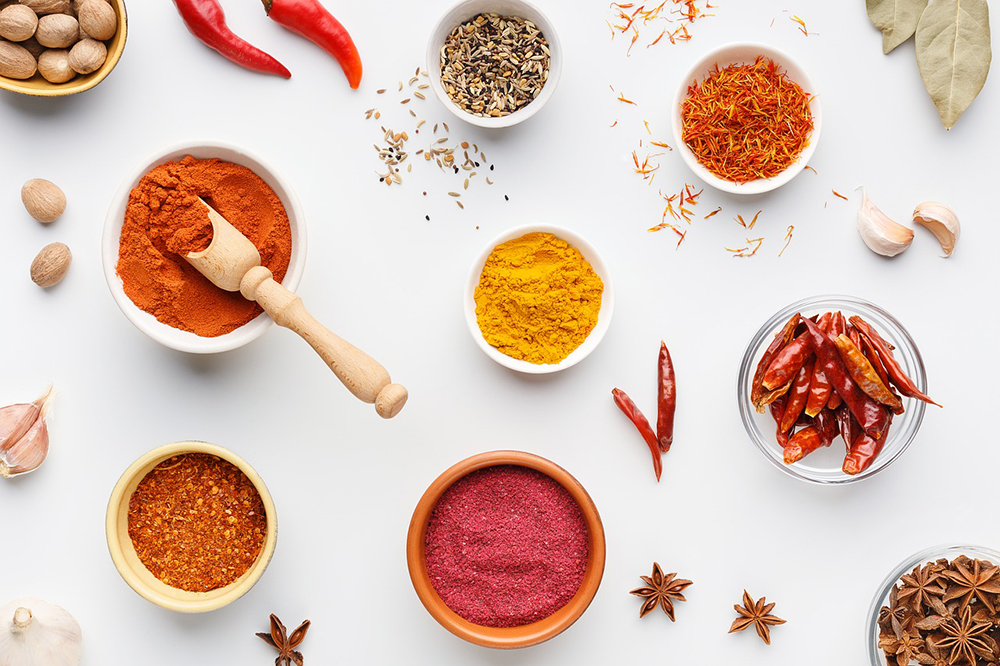
Below is an (alphabetical) list of essential spices you should keep on hand in your pantry:
And here are some spices you should eventually add, should you have the budget for them:
A note on sourcing spices: with the exception of some of my rarer Middle Eastern spices, I tend to turn to either The Spice House or Savory Spice Shop (which is local to me here in Colorado) for my base spices. I’ve never had quality issues with either of them, and they have great customer service. I find most of my Middle Eastern spices at my local Arab supermarket, during my work travel to the Middle East at the spice souks, or online.
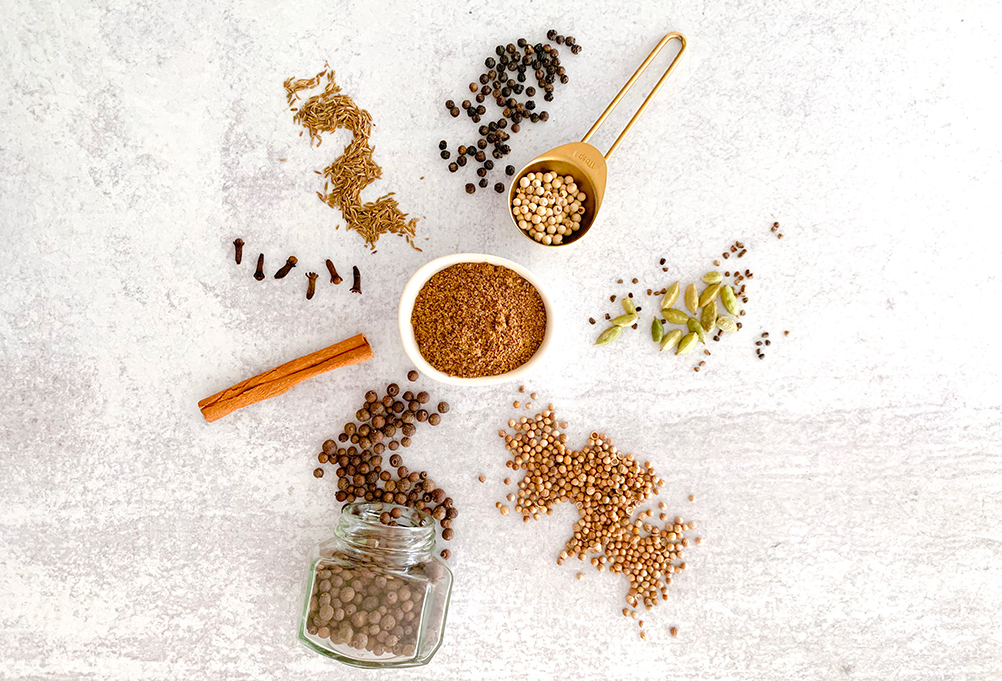
These are commonly-used spice blends in both Middle Eastern and North African recipes. While all of them can be purchased either at your local specialty grocer, Arab supermarket, or online – if possible I will include links to recipes to create them yourself at home instead. I highly recommend grinding your own, if only for the feeling of accomplishment – but I promise it’ll taste better, too.
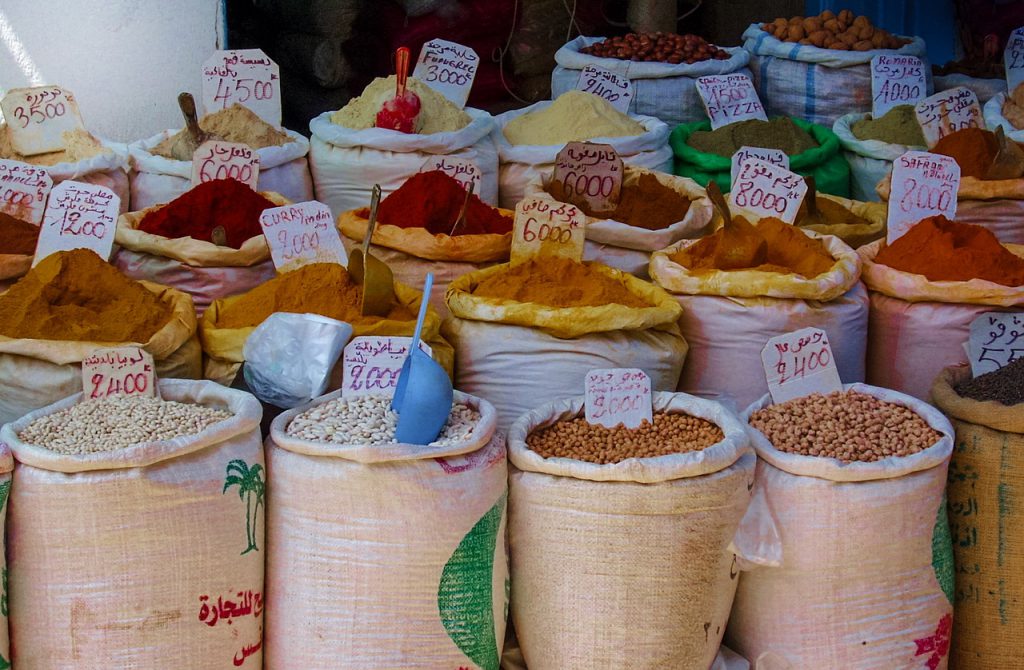
These ingredients are common in most Mediterranean recipes and most can be stored in your pantry (no refrigeration required).
While pulses, legumes, and rice can be left in your pantry, keep your nuts sealed in bags or airtight containers in your refrigerator or freezer to prevent them from becoming rancid, particularly in warmer locales.
These grains are typically used in baking, but have other applications. They can be stored at room temperature, in an airtight container.
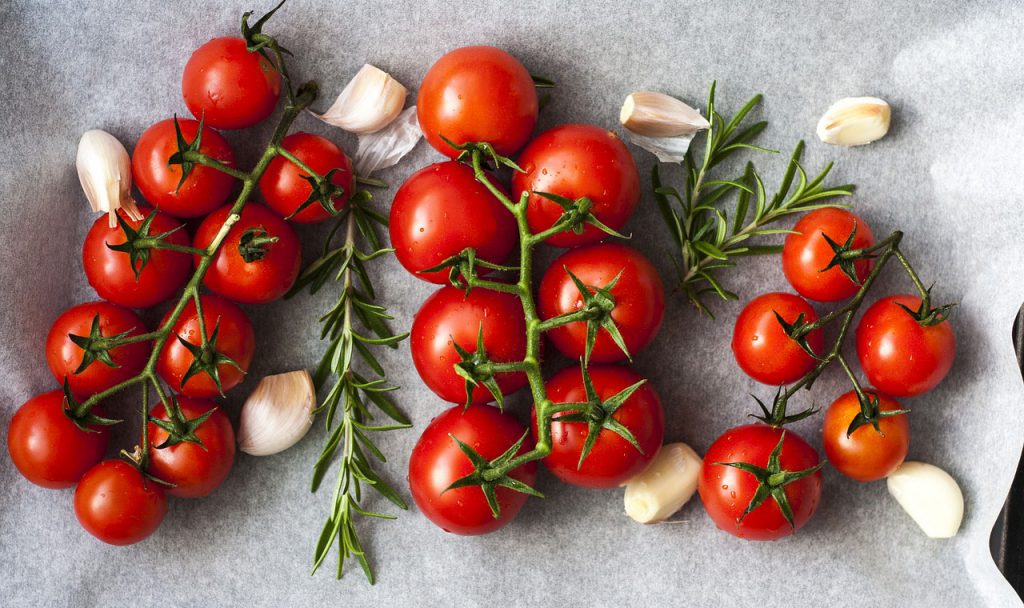
These are the produce items you’ll use frequently in Mediterranean meals.
Okay, I know some of these are technically classified as fruit, but I am including them here.
This page is always a work in progress, but if you think I’ve missed something (and I’m sure I have!) let me know. These are the basics of my Mediterranean kitchen, and hopefully I’ve helped shed some insight on what you need to start cooking bright, beautiful Mediterranean meals for your family!